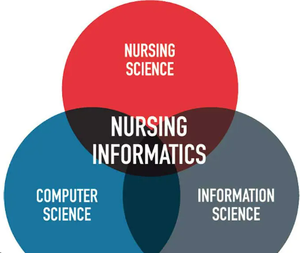Blog Information
- Posted By : diane mason
- Posted On : Mar 09, 2023
- Views : 100
- Category : General
- Description : Nursing informatics is the intersection of nursing science, computer science, and information science.
- Location : usa
Overview
Nursing informatics is the intersection of nursing science, computer science, and information science. It involves the use of technology to manage and process patient data, as well as to enhance clinical decision-making and communication among healthcare providers. Nursing informatics has revolutionized the healthcare industry by improving the accuracy and speed of patient care. In this article, we will explore the various aspects of nursing informatics and how it is transforming the healthcare industry.
What is Nursing Informatics?
Nursing informatics refers to the use of technology to manage and process patient data. This includes electronic health records (EHRs), computerized physician order entry (CPOE), and decision support systems (DSS). EHRs allow healthcare providers to access patient records from anywhere, at any time, and to share patient information with other providers. CPOE eliminates the need for handwritten orders, reducing errors and improving patient safety. DSS provides healthcare providers with real-time information to support clinical decision-making.
The Benefits of Nursing Informatics
One of the biggest benefits of nursing informatics is improved patient care. By providing healthcare providers with real-time access to patient data, they can make more informed decisions about patient care. This can lead to faster diagnoses, more accurate treatment plans, and better outcomes for patients. Nursing informatics also improves communication among healthcare providers, which can reduce errors and improve patient safety. For example, if a patient is taking multiple medications, nursing informatics can help ensure that there are no adverse drug interactions.
Another benefit of nursing informatics is increased efficiency. By automating certain tasks, such as data entry and medication orders, healthcare providers can spend more time with patients. This can lead to improved patient satisfaction and better outcomes. Nursing informatics can also help reduce costs by eliminating the need for paper records and other manual processes.
The Future of Nursing Informatics
The future of nursing informatics is bright. As technology continues to evolve, there will be even more opportunities to improve patient care. One area of focus is the use of artificial intelligence (AI) to support clinical decision-making. AI can help healthcare providers analyze large amounts of patient data and identify patterns that may not be visible to the human eye. This can lead to more personalized treatment plans and improved outcomes.
Another area of focus is the use of mobile technology to support patient care. Mobile apps can help patients manage their health, track their medications, and communicate with their healthcare providers. This can lead to improved patient engagement and better outcomes.
Challenges and Considerations
While nursing informatics has many benefits, there are also challenges and considerations to keep in mind. One challenge is the need for ongoing training and education. As technology continues to evolve, healthcare providers need to stay up-to-date on the latest tools and techniques. This can be time-consuming and expensive.
Another consideration is the need to maintain patient privacy and confidentiality. With the increased use of technology, there is a risk of data breaches and other security issues. Healthcare providers need to take steps to ensure that patient data is secure and protected.
Conclusion:-
Nursing informatics is a rapidly growing field that has transformed the healthcare industry. By using technology to manage and process patient data, healthcare providers can make more informed decisions about patient care, improve communication among providers, and increase efficiency. The future of nursing informatics looks bright, with the potential to use AI and mobile technology to further improve patient care. However, it is important to keep in mind the challenges and considerations, such as the need for ongoing training and education, and the need to maintain patient privacy and confidentiality. By addressing these challenges, nursing informatics will continue to improve patient care and revolutionize the healthcare industry.
